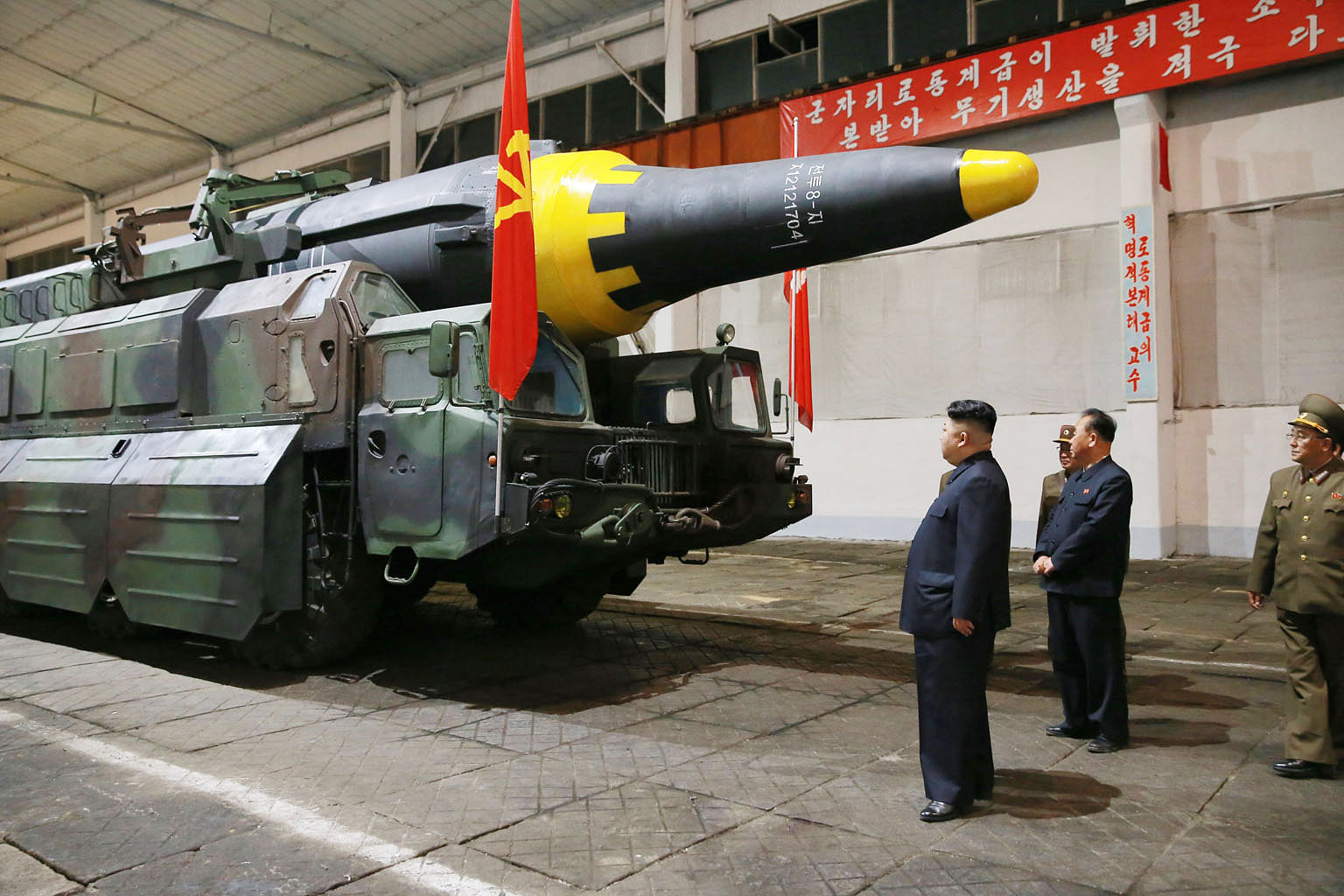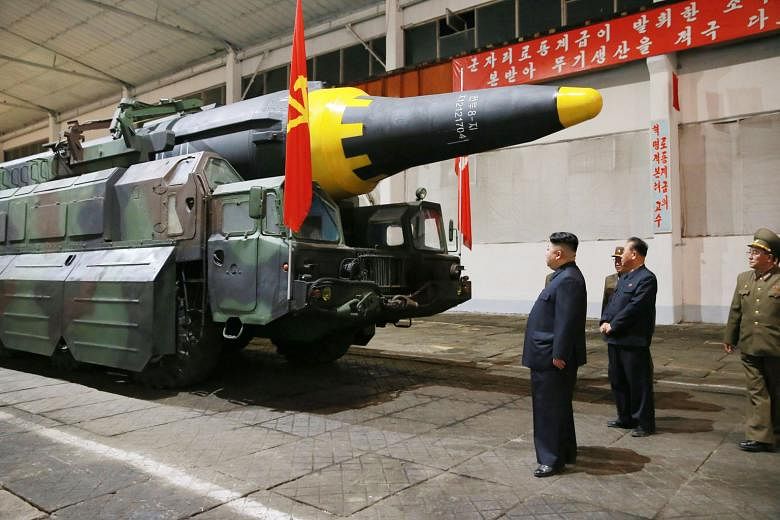At the second Shangri-La Dialogue in 2003, the participants of the security summit agreed that North Korea's nuclear arms programme had to be stopped. But they did not know exactly how - whether they should go for a military solution or economic sweeteners.
In January that year, the North Koreans had pulled out of the Nuclear Non-proliferation Treaty, raising the spectre of a nuclear threat in North-east Asia. The Straits Times reported the United States as hinting at "robust, coercive measures" if Pyongyang escalated the crisis and that its position was that all options remained on the table.
Fast forward to this year, and it appears that in the intervening 14 years, the US and the rest of the world have been treading water on the nuclear threat that Pyongyang poses, with nary a solution in sight.
Even the language has remained almost the same. US Secretary of State Rex Tillerson said in March on a visit to Seoul: "We are exploring a new range of diplomatic, security, economic measures. All options are on the table."
Yet, much water has gone under the bridge in the last 14 years.
In August 2003, China hosted the first of a series of multilateral talks to end the North Korean nuclear programme, with the Six Party Talks involving North Korea, South Korea, the US, China, Russia and Japan.
There were progress and setbacks, but in 2007 - after Pyongyang had conducted its first nuclear test in 2006 - North Korea agreed to shut down its nuclear facilities in exchange for energy aid.
There was also agreement to start the process of denuclearisation of the Korean peninsula, normalising ties between North Korea and the US and having a peace and security mechanism for North-east Asia.

In 2009, Pyongyang pulled out of the talks and resumed its nuclear programme after the UN Security Council condemned its satellite launch in April. It conducted its second nuclear test in May.
Then US President Barack Obama took a policy of strategic patience towards North Korea - non-negotiation and heavier sanctions to pressure Pyongyang into giving up its nuclear programme. This policy is seen to have failed as it did not stop North Korea from continuing with its nuclear and missile development programmes.
Under leader Kim Jong Un, who succeeded his father Kim Jong Il after the latter died in December 2011, these programmes have intensified with increasing success.
Last year alone, he conducted two nuclear tests and 24 missile launches, after conducting his first nuclear test in 2013. This year, Pyongyang has launched eight missile tests, including two this month.
All this has given new urgency to dealing with the North's nuclear issue, and US President Donald Trump has decided to abandon Mr Obama's "strategic patience" approach for a more proactive one. This included sending the aircraft carrier Carl Vinson to the Korean peninsula in a show of force.
But key to Mr Trump's new approach is pressuring China, Pyongyang's close ally, to do more to rein in the North's nuclear and missile programmes. China, which provides energy and food aid to North Korea and accounts for 90 per cent of the North's foreign trade, has agreed to implement UN sanctions fully and is open to new sanctions against the North.
But it is also calling for both sides to pull back from their provocative activities - Pyongyang's nuclear and missile tests and the US' large-scale military exercises with South Korea - to reduce tensions so that talks can begin. It advocates a diplomatic process and insists that there should not be armed conflict on the Korean peninsula.
The US has previously insisted as a precondition for talks that Pyongyang pledge the complete and irreversible dismantling of its nuclear programme. But North Korea will not give up its nuclear weapons unless it has guarantees that it will not be attacked by the US.
The situation is at an impasse and the different stakeholders have little agreement on how to resolve it.
The North Korean nuclear issue will be on the agenda at this week's Shangri-La Dialogue, but there is unlikely to be any progress on how to deal with it.
Goh Sui Noi


